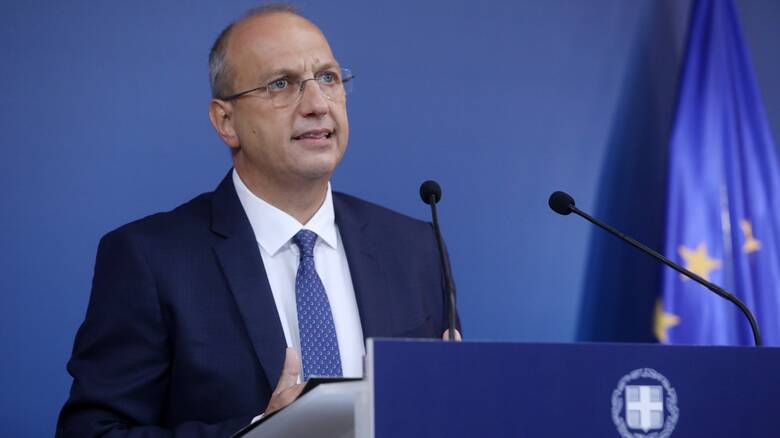Government spokesman Yannis Economou today described the US-Greece Mutual Defence Cooperation Agreement as a huge success for the country and as a response to Turkey’s threat of war against Greece, even in the event that Greece is confronted with an attack on its territory.
“It is an agreement that recognises the mutual protection of peace and security in the region. It is the first time that this is expressed in a document and it constitutes a substantial response to Turkey’s casus belli,” he said.
Reference to Greece’s sovereign rights
“There is a very clear reference to our country’s sovereign rights as defined in the law of the sea. That directly refers to our sovereign rights as regards our Exclusive Economic Zone and continental shelf. Moreover, the presence of the US is upgraded in locations that are critical for Greece, with the most important being Crete, Evros [Greek-Turkish border region], and Alexandroupolis, without the agreement precluding the prospect of an extension to Aegean islands,” Economou said.
“This is yet another huge success for Greek foreign policy and for the country,” he told “Channel 1-90.4” in an interview. He said that there are certain things [of geopolitical importance] that for the first time are expressed with such great clarity and which absolutely bolster Greece’s geostrategic imprint in the Aegean and Eastern Mediterranean.
Economou maintained that there will be a mutual US-Greece protection of peace and security in the region even in the case of an armed attack, though the MDCA does not include a mutual defence pact that would commit the US to intervention.
“There is a very clear reference to protecting our country’s sovereign rights as set out in the international law of the sea. That refers directly to our sovereign rights as regards our EEZ and continental shelf,” he maintained.
Although there is no direct reference to Turkey’s violation of Greece’s sovereign rights in the Mediterranean or the Aegean in US Secretary of State Antony Blinken’s non-binding October 12 letter to Prime Minister Kyriakos Mitsotakis – it refers to “respect for sovereign rights and territorial integrity” in general – Economou rightly interpreted the contextual framework of the letter as a “denunciation of the violations and provocations of the Turkish side”, albeit implicitly.
Economou stressed that Greece is calmly and decisively dealing with the recent barrage of Turkish provocations: “With a well-planned foreign policy we are reaping the benefits”.
“The Greek people see that clearly see the upgraded relations and alliances with all of the major players both on the international political stage and in our region – with agreements on delimiting our EEZ with Egypt and Italy, on the electricity link-up with Egypt and Italy, and with the defence agreement with France,” he said.
Ankara’s annoyance
Economou indicated that Athens is not at all surprised by Ankara’s consternation over Greece’s successive geopolitical moves.
“Ankara’s annoyance with the results of our multi-level foreign policy does not take us by surprise. It may be expressed in various areas and at various levels…What counts is clear knowledge of the terrain, correct projections, and above all calm and decisiveness in Hellenism’s defence of its sovereign rights, based on the rules of international law and the deterrent force that one has.”



